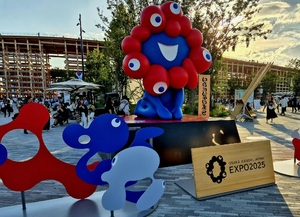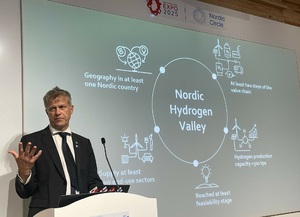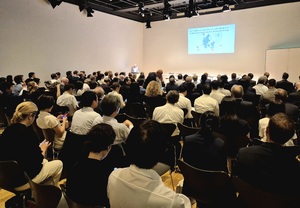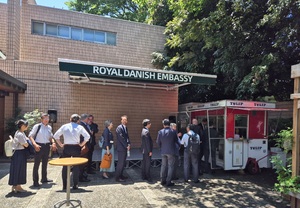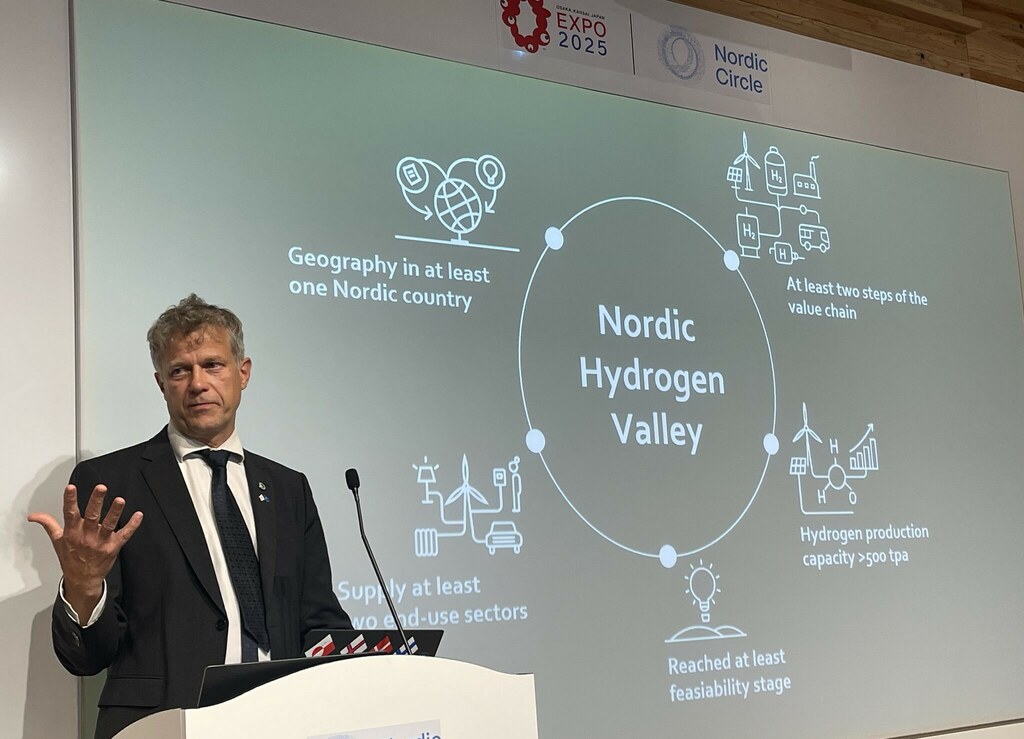
Nordic Energy Days at EXPO 2025
On 16 and 17 June, the Nordic Energy Days took place in Osaka and Tokyo, Japan. In collaboration with the Nordic Council of Ministers, Nordic Energy Research participated in the…
On 16 and 17 June, the Nordic Energy Days took place in Osaka and Tokyo, Japan. In collaboration with the Nordic Council of Ministers, Nordic Energy Research participated in the event and hosted several thematic sessions. Highlighting the outcomes of Nordic cooperation in the energy sector, Nordic Energy Research presented progress on hydrogen valleys and showcased the unique knowledge base developed through close Nordic collaboration.
Showcasing Nordic Hydrogen Valleys at the Nordic Pavilion
The Nordic Pavilion at EXPO 2025 in Osaka is hosted by Denmark, Finland, Iceland, Norway, and Sweden in cooperation with the Nordic Council of Ministers. When the first Nordic Energy Day commenced in Osaka on 16 June, there was an evident interest in Nordic energy cooperation as the venue was filled with stakeholders from Japan, the Nordics, and beyond.
The Norwegian Ambassador to Japan, Kristin Iglum, opened the day by highlighting the Nordic countries’ long-standing tradition of cooperation in the energy sector. She remarked,
“The Nordic countries share a long tradition of energy cooperation and tackling complex challenges. We may be small, but we act on a great scale.”
The programme was filled with sessions on renewable energy, flexible power grids, and value chains for hydrogen, ammonia, and CO₂. Especially hydrogen is of great interest to Japanese stakeholders as Japan is actively pursuing a hydrogen-based economy as part of its strategy to achieve carbon neutrality by 2050.
Nordic Energy Research contributed insights into the Nordic hydrogen valley landscape, with Nordic Energy Research’s CEO, Klaus Skytte, showcasing the mapping of Nordic hydrogen value chains. This pioneering work, which is also visualised in an interactive tool, aims to provide decision-makers, investors, and society at large with insights into the development and deployment of hydrogen projects – including their planned capacity and current status. There is significant activity in clean hydrogen across the Nordics, with 167 projects at various stages of maturity – most still in the planning phase. Collectively, these projects represent a potential future annual production capacity of eight million tonnes (270 TWh).
Access the presentations from the first day here.
Hydrogen and future e-fuels in focus in Tokyo
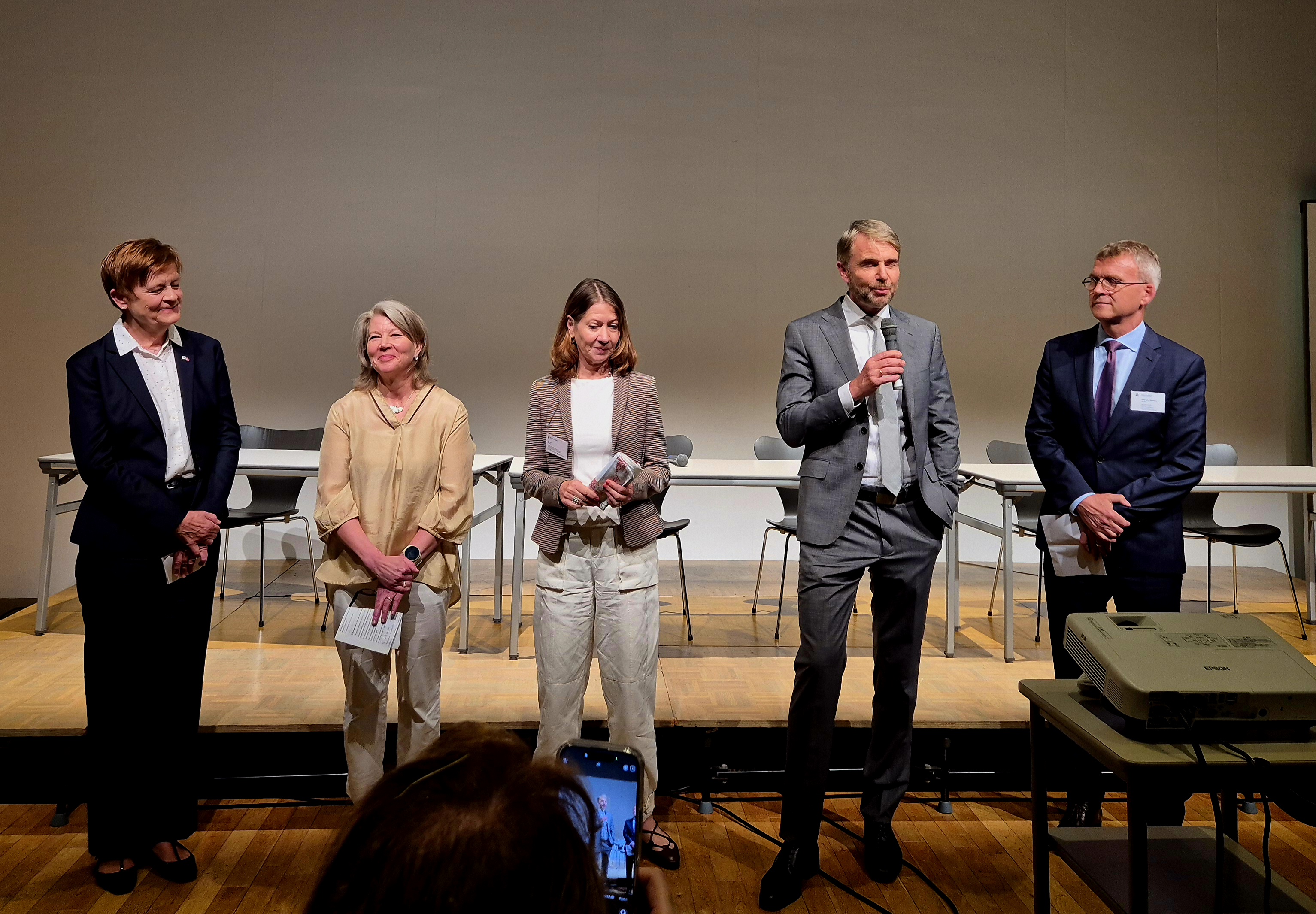
The five Nordic ambassadors to Japan opened the second Energy Day in Tokyo with a joint welcome speech. From left: Norwegian Ambassador Kristin Iglum, Finnish Ambassador Tanja Jääskeläinen, Swedish Ambassador Viktoria Li, Danish Ambassador Jarl Frijs-Madsen, and Icelandic Ambassador Stefán Haukur Jóhannesson.
On the second day, the arena shifted to Japan’s capital, Tokyo. Nordic Energy Research and the Nordic Council of Ministers co-led a session on hydrogen and e-fuels for heavy-duty transport, attended by over 150 stakeholders.
The Nordic ambassadors delivered a joint welcome address, each underlining the importance of Nordic cooperation in energy. The Swedish Ambassador, Viktoria Li, stated:
“The Nordics are more than just neighbours. Together we are aiming higher – for example, by developing joint hydrogen value chains. That is the Nordic model.”
The Nordic region and Japan are major actors in the shipping sector, with long maritime traditions and extensive expertise. As global leaders in the transition to green shipping, there is much to gain from closer collaboration. The Nordic roadmap for future fuels exemplifies how a Nordic cooperation platform can support knowledge-sharing across sectors and borders.
The roadmap project, funded by the Nordic Council of Ministers and conducted by DNV, was presented by DNV’s Country Manager in Japan, Stian Sollied.
Through the development of green shipping corridors, the Nordics aim to be at the forefront of the transition to zero-emission shipping. Introducing sustainable, zero-emission fuels is critical to achieving the International Maritime Organization’s emissions targets. The project’s joint roadmap is a valuable resource for policymakers, industry players, and infrastructure planners alike.
Watch a short video about the project here.
Access the presentations from the second day here.
Takeaways from the Nordic Energy Days
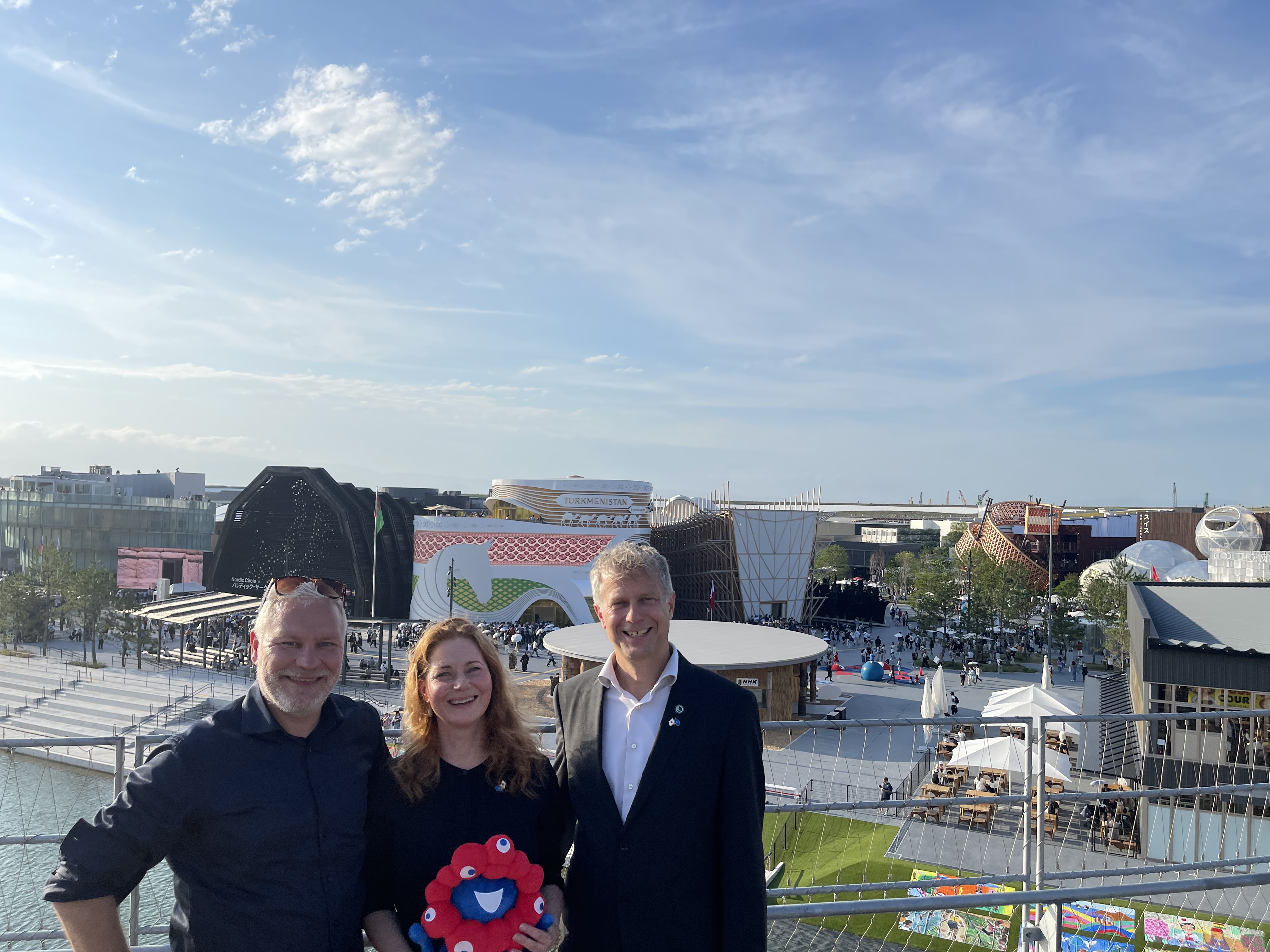
All smiles after the first Nordic Energy Day in Osaka. From left: Mikael Carboni Kelk and Niina Aagaard, the Nordic Council of Ministers, and Klaus Skytte, Nordic Energy Research.
What can the Nordics and Japan learn from each other in the energy field? A great deal, according to Klaus Skytte, following meetings with Japanese and Nordic decision-makers and companies and the presentation of the Nordic knowledge base on hydrogen.
“There has been a deep interest in our mapping of Nordic hydrogen valleys. The report and its digital tool highlight the significant potential for a clean hydrogen economy in the Nordics and can serve as inspiration for others working towards similar goals,” he said.
Given the role that Japan sees for hydrogen in achieving carbon neutrality, the Nordic cooperation on hydrogen was engaging for Japanese stakeholders – something clearly demonstrated over the past few days in Japan.
“I see great potential for increased cooperation between the Nordics and Japan in this crucial area for our climate goals,” Skytte concluded.
The Nordic Pavilion at EXPO 2025
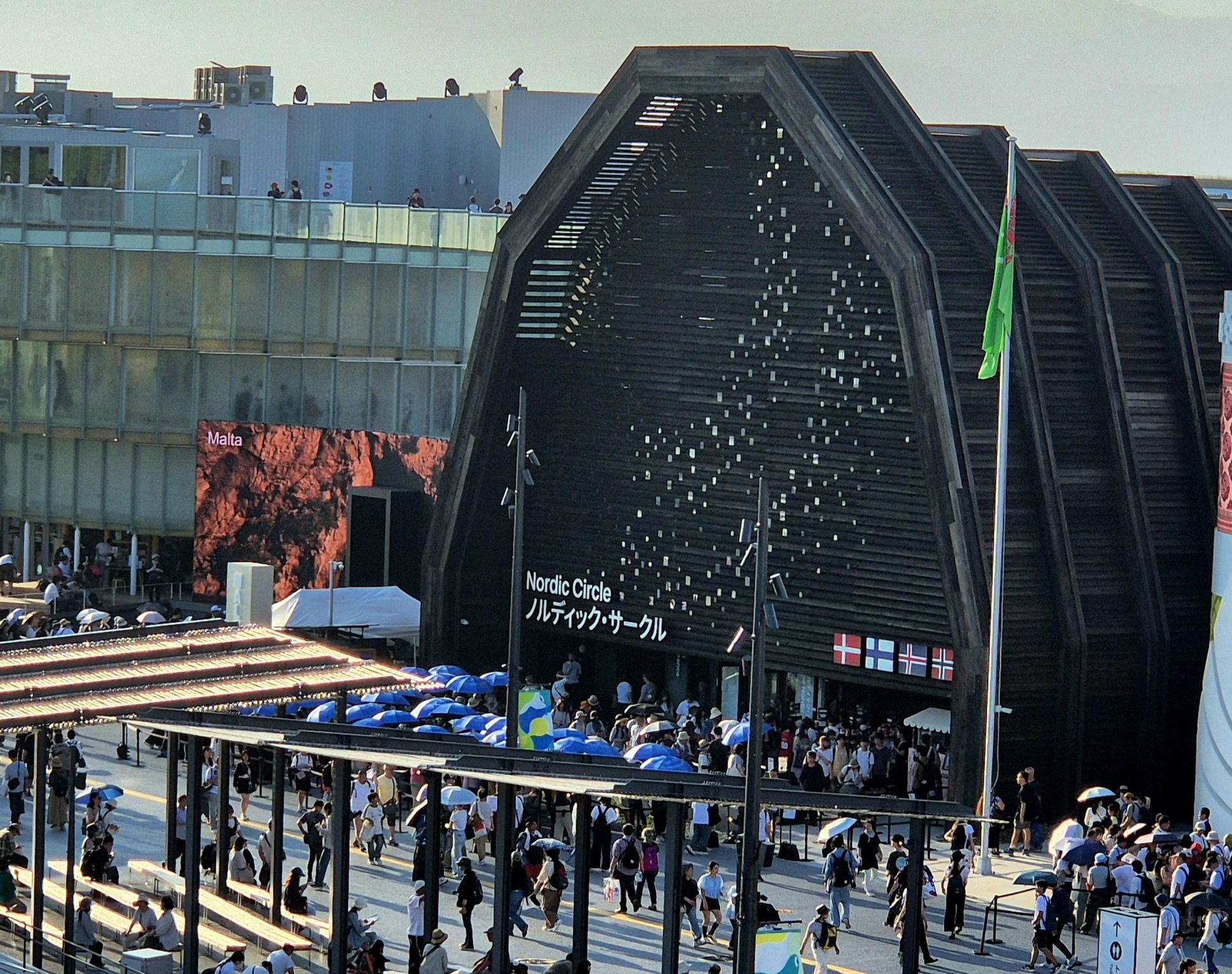
At EXPO 2025, the Nordic countries come together under a shared pavilion. The Nordic Pavilion is designed as a platform to highlight Nordic values and competencies through interactive exhibitions, cultural experiences, and knowledge-sharing events.
Over the six-month duration of the EXPO, the Pavilion will host a rich and diverse daily programme led by the five Nordic countries – Denmark, Finland, Iceland, Norway, and Sweden in cooperation with the Nordic Council of Ministers. Events will range from policy dialogues to cultural showcases.
Several Joint Nordic Days will also take place during the EXPO, each focusing on a key theme such as clean energy, health tech, gender equality, food innovation, culture, and more – underscoring the Nordic region’s shared contributions to global sustainability, innovation, and well-being.
Read more about the Nordic Days here.

